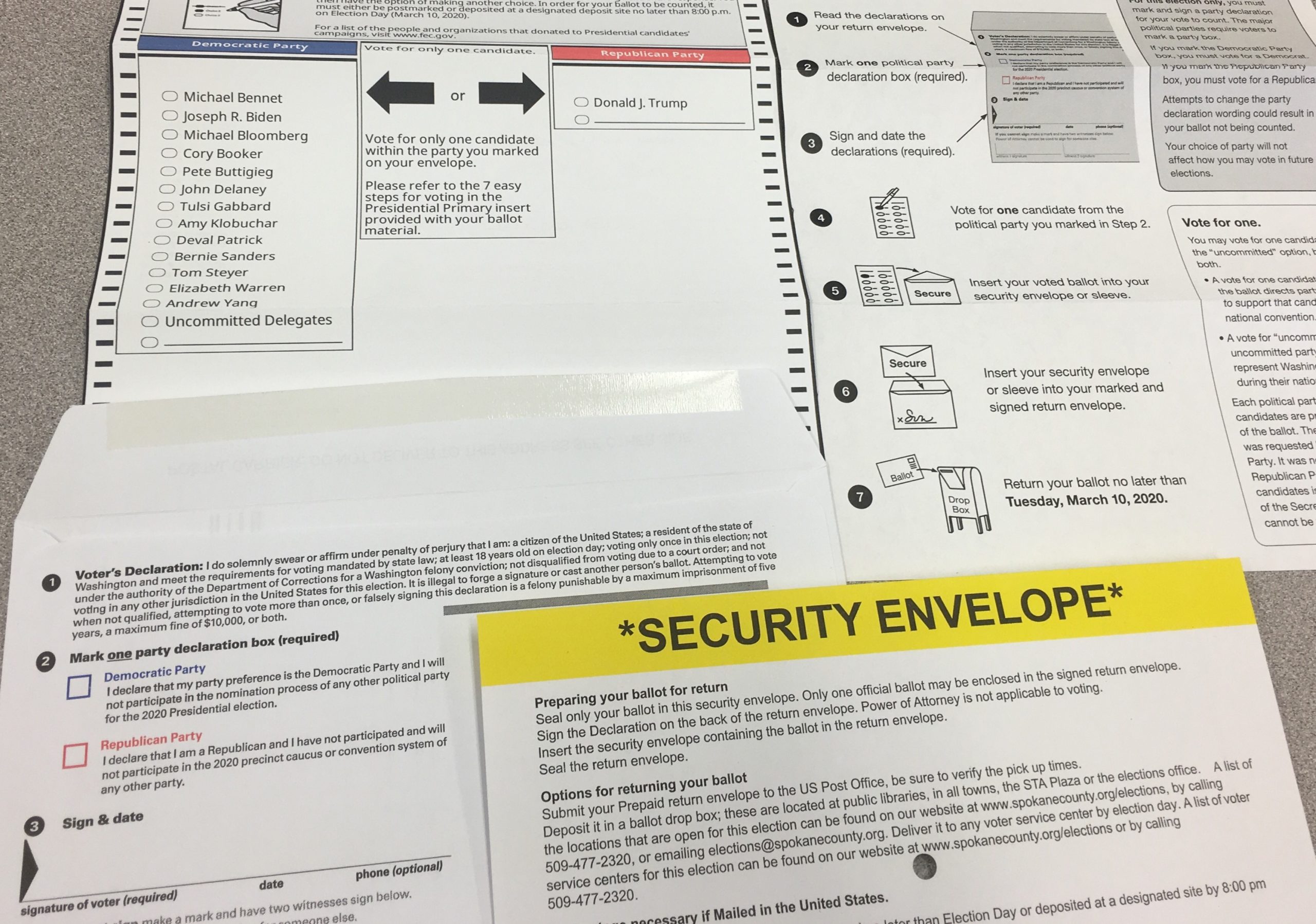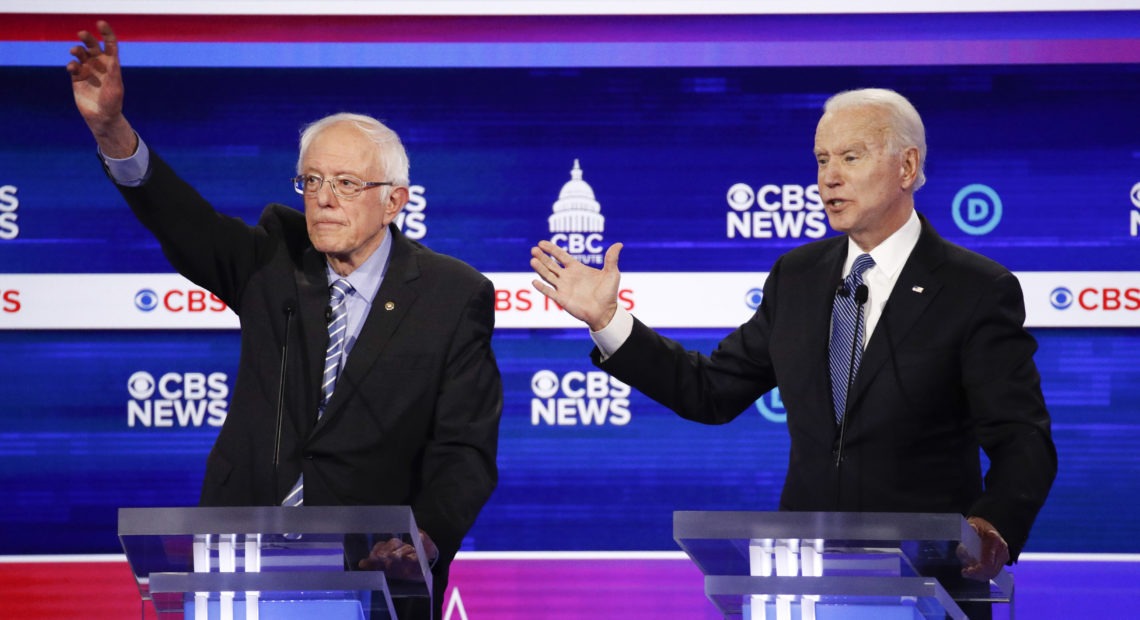
On ‘Big Tuesday,’ Washington And Idaho Results Don’t Move Needle Much For Democrats
READ ON
After a night of big wins in Michigan, Missouri and Mississippi for former Vice President Joe Biden, the Democratic presidential primaries in Washington and Idaho did little to clarify the race between the race’s two remaining front-runners.
Vermont Sen. Bernie Sanders and Biden were virtually tied in Washington after the first round of counting votes Tuesday night. Sanders received 32.7% of the vote, and Biden has 32.5%.
In Idaho, Biden had a stronger finish and pulled ahead in later returns Tuesday night. The Associated Press projected Biden would win Idaho, and results Wednesday morning showed him leading Sanders with 48.8% of the vote to Sanders’ 42.5%. That result would give Biden 11 Idaho delegates and Sanders would get nine.
Washington, an all-vote-by-mail state, will continue counting over the coming days, and results may change. Votes must be counted and certified by March 27. About 1.5 million votes were counted Tuesday. Nearly 300,000 remain uncounted.
In Idaho, election results began coming in at 7 p.m. PT, when polls closed in the eastern part of the state. Statewide results were slow to come, and are being delivered by each county.
Second-Biggest Haul
When results are complete for the March 10 “Big Tuesday” contests, Washington will deliver the second-biggest haul of delegates of the state voting March 10, with 89 Democratic delegates. Idaho has 20. Of the six states voting, Michigan is the biggest take, with 125 delegates.
Sanders’ showing in Washington is similar to how he performed in 2016, when he narrowly lost the primary to Hillary Clinton. But that primary didn’t count because at the time the Democratic Party used a precinct caucus system in the state to divvy up delegates.
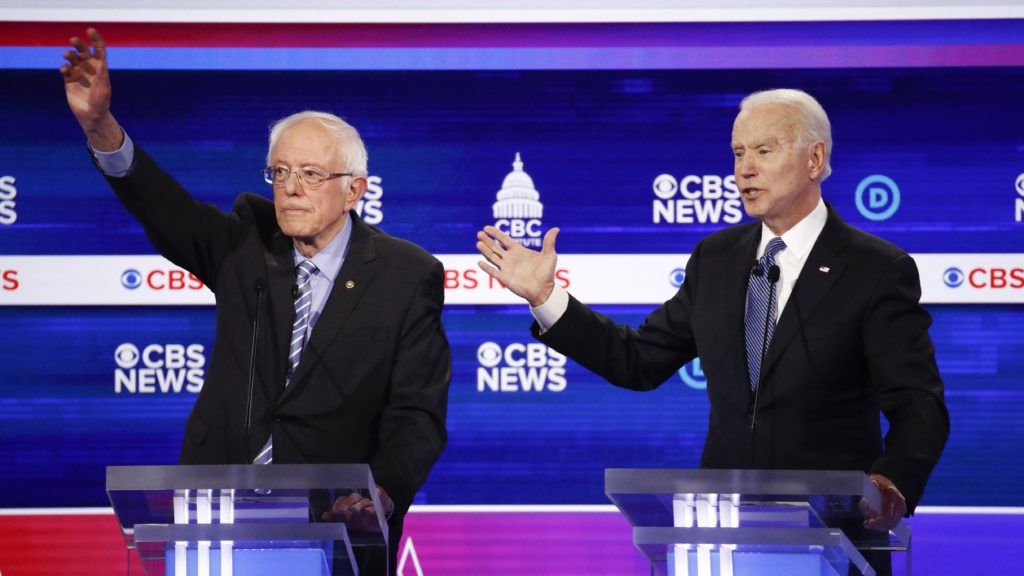
Sen. Bernie Sanders and former Vice President Joe Biden, seen here at the South Carolina Democratic debate, squared off Tuesday in states including Idaho and Washington. CREDIT: Patrick Semansky/AP
Switching to a primary system for 2020 may have hurt Sanders. He handily won Washington’s party-run caucuses in March 2016 with 73% of the vote. Two months later, Clinton took 53% of the vote in the state-run primary that wasn’t used to allocate delegates.
Four years ago, Sanders visited Spokane twice – first drawing an overflow, weekend crowd at the Spokane Convention Center. Three days later, he spoke to a smaller crowd at the largely empty Spokane Veterans Memorial Arena. Clinton did not visit the city, but her husband, former President Bill Clinton, campaigned for her at Spokane Falls Community College.
This year’s Washington primary win by Trump reprises 2016, when he tromped the competition by winning more than three-quarters of the vote. His closest competitor that year was Texas Sen. Ted Cruz, who received 10% of the vote.
Washington And Idaho Voters
In Washington this year, the state’s 4.5 million registered voters had just one Republican to consider: Trump.
For Democrats, voters had 13 candidates to choose from, but most had dropped their bids for the nomination before Tuesday. Besides Biden and Sanders, only U.S. Rep. Tulsi Gabbard of Hawaii remains in the race. Before Tuesday’s vote, Gabbard had won only two delegates — from the caucuses in American Samoa — compared to Biden and Sanders’ hauls of more than 500 apiece.
Going into Tuesday and before the first round of ballots were counted, about 35% of registered voters in Washington had cast votes, already outpacing turnout for the 2016 primary.
The state has voted for a Democrat for president every election since 1988, when voters narrowly supported Massachusetts Gov. Michael Dukakis over then-Vice President George H.W. Bush for president in the general election.
It’s a different story in Idaho, where voters have only supported one Democrat for president in the last 68 years — when Lyndon B. Johnson ran to keep the White House in 1964.
That’s not for a lack of choices. Unlike in Washington, there are six Republicans running in Idaho’s presidential primary, which is only open to registered party members. Besides Trump, the GOP primary features Roque “Rocky” De La Fuente, Bob Ely, Matthew John Matern, Joe Walsh and Bill Weld.
Voters who aren’t affiliated with a party could vote for one of the 17 Democrats on the ballot, or for the Constitution Party, which had six candidates: Don Blankenship, Daniel Clyde Cummings, Don J. Grundmann, Charles Kraut, J.R. Myers and Sheila “Samm” Tittle.
In 2018, the state Constitution Party, which has nearly 3,000 registered members, broke away from the national group. The same year, party leaders voted to open up the primary to independent voters.
According to its website, the Constitution Party “acknowledges the sovereignty of God and wants to return our country to the Constitution which is based on biblical principle.”
Idaho will hold another election May 19, when voters choose nominees for the state legislature, county offices, both congressional seats and the U.S. Senate. Sen. Jim Risch, a Republican, is seeking reelection.
Idaho voters have until March 13 to change their party affiliation ahead of the next election.
School Funding
The Idaho ballot also has a raft of school levies for voters to consider. Of the state’s 115 school districts, 41 are asking voters to support $174 million total in property tax levies.
In the panhandle and north-central Idaho, those requests include school districts in Kellogg’s two-year, $5.97 million supplemental levy; Orofino’s two-year, $5.37 million supplemental levy; Potlatch’s one-year, $1.75 million supplemental levy; Kamiah’s two-year, $1.29 million supplemental levy; Troy’s one-year, $995,000 supplemental levy; Genesee’s one-year, $935,000 supplemental levy; Kendrick’s one-year, $810,000 supplemental levy;
Voters in Kamiah turned down a levy a year ago, leading to the closure of a middle school and subsequent space crunch at the town’s elementary and high schools.
Related Stories:
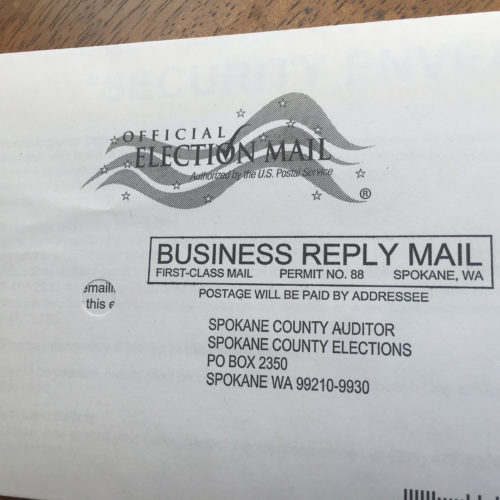
Breaking Down Dynamics Of Washington’s Aug. 4 Primary, With A Crowded Race For Governor
While turnout in November could easily top 80 percent, Washington’s August primary typically draws 40 percent or less of the electorate. We break down the dynamics of this year’s unusual election season during the coronavirus pandemic.
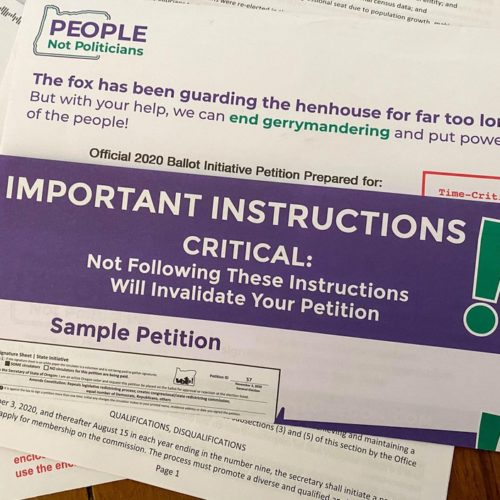
During Pandemic, Opponents Of Oregon Partisan Redistricting Pursue New Ballot Initiative Strategy
The COVID-19 pandemic has killed several would-be initiative campaigns in Oregon because organizers can’t send canvassers out to gather the tens of thousands of signatures needed to qualify for the November ballot.
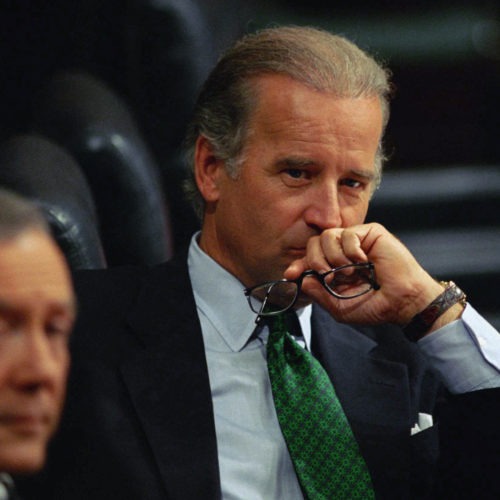
On The Record: Former Joe Biden Senate Staffer Tara Reade Details Sexual Assault Allegation
Tara Reade, who worked in Joe Biden’s Senate office, has accused the presumptive Democratic nominee of a 1993 sexual assault. His campaign said it “absolutely did not happen.”

